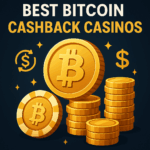Greetings, cryptomaniacs! In this article, we’re going to talk about Uniswap. If you’ve been around the digital currency block a few times, or if this is your first foray into trading cryptocurrencies, there’s a good chance you’ve at least heard of Uniswap. But what is it?
Well, hold onto your hats because we’re about to zoom off into outer space on a rollercoaster that will plunge us into the depths of what makes this one of the most groundbreaking technologies in history.
What is Uniswap?
Uniswap is a popular decentralized trading protocol for facilitating automated decentralized finance (DeFi) token trading.
An example of an automated market maker (AMM), Uniswap, launched in November 2018 but has gained considerable popularity this year thanks to the DeFi phenomenon and associated surge in token trading.
Uniswap aims to keep token trading automated and open to anyone who holds tokens, while improving the efficiency of trading versus that on traditional exchanges. Uniswap creates more efficiency by solving liquidity issues with automated solutions, avoiding the problems which plagued the first decentralized exchanges.
In September 2020, Uniswap created and awarded its governance token, UNI, to past protocol users. This added profitability potential and users’ ability to shape their future — an attractive aspect of decentralized entities.
How does Uniswap work?
Uniswap is based on the concept of liquidity pools, token reserves locked in smart contracts. Rather than using traditional order books, these reserves allow users to swap tokens with each other.
In this system, transactions are executed against these pools, and the price is determined by a mathematical equation that considers the proportion of the whole pool each token represents.
This means trades can be made anytime without waiting for someone else to take the opposite side.
Additionally, people can earn money by contributing their tokens to a reserve and becoming a liquidity provider; they will receive a portion of all transaction fees proportional to their share of the total pool balance over time. With its decentralized structure and automation capabilities,
Uniswap has become an efficient platform accessible to anyone with internet access and some form of digital asset available for trading. This design contributed significantly towards making it one among many widely used decentralized cryptocurrency exchanges operating in the DeFi space today.
How do you buy Uniswap?
To buy Uniswap (UNI) tokens, you usually must use a crypto exchange that supports UNI trading pairs. You have to create an account on the exchange, pass all required verification stages and deposit some money into your account.
When you have funds, go to the exchange’s trade section and find the UNI token. Next, you need to place a buy order indicating how much of UNI you want to purchase and at what price you are ready to pay per unit.
When the system matches your order with a seller, he sends the necessary amount of UNI directly into your wallet on that exchange platform. Otherwise, users may also acquire them through decentralized exchanges like Uniswap, where they can swap other tokens for UNI right from their wallets without any intermediary involved.
Top Exchange Where You Can Buy Uniswap
Binance is considered one of the top exchanges that you can buy Uniswap (UNI) from. On a global scale, Binance is recognized as one of the largest and most popular cryptocurrency exchanges. It offers a wide range of trading pairs and services. Read on to learn how to buy Uniswap on Binance:
Trading Pair: At Binance, UNI is usually traded against major cryptocurrencies like Bitcoin (BTC), Ethereum (ETH), Binance Coin (BNB), and stablecoins such as USDT (Tether).
Registration and Verification: To purchase Uniswap on Binance, individuals must create an account with the platform. During registration, users are required to provide their email addresses and set up passwords for their accounts. Depending on their desired level of access, they may need to complete identity verification (KYC) procedures, which typically involve submitting identification documents.
Deposit: Once an account has been registered and verified, users can deposit funds into their Binance wallets. Binance supports cryptocurrency deposits; fiat deposits can be made via bank transfer or credit/debit card, depending on the user’s location and account verification level.
Trading: When funds have been successfully deposited into a user’s Binance account, they can visit the trading section of the platform.
Here, individuals can search for UNI trading pairs they wish to trade, e.g., UNI/USDT or UNI/BTC; place market orders to purchase UNI at the prevailing market price; or set limit orders specifying prices at which they want to buy UNI.
Security: Aspects related to security are given priority by Binance, which also provides features such as two-factor authentication (2FA), withdrawal allowlist, among others, and security audits meant for securing funds belonging to users and their personal information.
Fees: Trading fees are charged by Binance; they differ depending on a user’s trading volume and whether or not they hold Binance Coin (BNB), which can be used to pay for fees at discounted rates. Individuals should review Binance’s fee schedule for more information on trading fees.
Withdrawal: After buying Uniswap from Binance, users can withdraw their UNI tokens into their cryptocurrency wallets to keep them safe or transfer them to another exchange or wallet address.
Is Uniswap safe?
There are risks and considerations associated with Uniswap or any decentralized protocol and cryptocurrency platform. Though theoretically secure from hacks or central points of failure due to being constructed with decentralized smart contracts, it does not mean there aren’t other safety aspects worth considering.
Primarily, there is a risk associated with smart contracts. Even though the company responsible for Uniswap has conducted extensive audits on their smart contracts, this could still leave some vulnerabilities or exploits undiscovered.
It would be wise for individuals engaging in transactions through protocols such as Uniswap to exercise caution and not invest more than they can afford to lose.
Market risks also need to be taken into account. Prices tend to change rapidly at decentralized exchanges like Uniswap, causing high volatility among assets traded over there; users may face slippage or temporary loss while providing liquidity for pools. Moreover, it should be noted that legislative frameworks revolving around DeFi (decentralized finance) and cryptocurrencies can swiftly change, affecting the legality or availability of services offered by platforms such as Uniswap.
Who runs Uniswap?
The Uniswap is a free protocol, which means it does not depend on any single authority or company. It is supported and built by community contributors, developers and users who participate in its governance process and continuous improvement.
Although created by Hayden Adams, the system operates independently on the Ethereum blockchain through intelligent contracts.
UNI token holders make all governance decisions, i.e., protocol upgrades or fee changes can only be done through decentralized governance, where they decide what they want to happen. For the protocol to move forward in a community-driven way but remain decentralised, proposals must be made on how things should be done and then voted upon by those holding
these tokens, thus making sure that this happens to align with its values as being one among many within the more expansive crypto space based on an open-source ethos which reflects ideas around permissionless innovation and decentralisation that form part of the broader cryptocurrency ecosystem related to financial services beyond traditional banking channels (DeFi).
How does Uniswap have value?
Many critical factors within the decentralized finance (DeFi) ecosystem contribute to the value of Uniswap.
One of them is allowing people to trade tokens without using intermediaries like centralized exchanges by becoming a decentralized trading protocol and providing liquidity for different cryptocurrency assets.
This is important as it attracts buyers and sellers who want to buy or sell coins quickly.
Another factor is UNI, an abbreviation for Uniswap’s governance token; these tokens also have many uses in the platform’s operations.
The holders have the right to vote on proposals about fee adjustment, giving them intrinsic value since they can influence what happens next concerning this system. Holders also get rewarded with more UNI tokens when they offer liquidity support on Uniswap, thereby creating another reason why someone would provide funds into any pool once.
The third factor involves incentivizing liquidity and providing uni swaps through UNI tokens. In this setup, those who make their money available can earn fees from trades executed on Uniswap, while those providing said amounts receive these same coins back as compensation. Such an arrangement prompts users to add liquid to various pools within this network, thus increasing overall usefulness and volume.
In summary, we can say that apart from being the foundational infrastructure of the DeFi space, its utility as a governance token and incentives for liquidity providers are what give Uniswap its value. As DeFi grows & changes, so will the importance/significance/value prop brought forth by this particular UniSwap project.
What are smart contracts?
Intelligent agreements are digital agreements that self-execute and work on blockchain technology.
They’re fundamentally code sets with regulations and contracts between parties where the contract terms are recorded directly in the cIntelligent contracts automaticalIntelligent contracts automatically execute actionsus enabling trustless transactions without intermediaries.
Once placed on a blockchain network such as Ethereum, smart contracts cannot be changed and are tamper-proof, ensuring transparency and security for all involved parties. This can be utilized for different purposes, including finance, supply chain management systems, and voting, thereby transforming decentralization and transparency in making and completing deals.
Top UniSwap Features
Decentralization
Uniswap is operated by decentralized intelligent contracts deployed on the Ethereum blockchain, this ensures that the protocol cannot be controlled by any person or group of persons with authority which makes it permissionless, censorship-resistant and free from central control.
Automated Market Making (AMM)
Without intermediaries or order books, Uniswap was the first to use automated market makers where users can trade cryptocurrencies directly from their wallets. Liquidity is provided automatically, allowing instant trades at prices determined algorithmically.
Liquidity Provision
What makes different coins easy to exchange is liquidity. By allowing anyone to deposit assets into a pool, uni swap incentivizes liquidity providers who share in fees generated by trades on that pool. This way, many tokens can stay liquid, and markets remain efficient.
Token Swapping
The user interface of Uniswap has been designed with simplicity as its priority, making token swapping effortless. With this feature, users can change one cryptocurrency for another straight from their wallet, which has led traders to consider it their go-to platform for accessing various tokens.
Decentralized Governance
Once the UNI token was introduced, holders gained rights over decision-making processes such as fee adjustments. Traders could now participate in deciding about protocol upgrades thanks to decentralization implemented by UniSwap through the UNI token.
Open Source
The codebase of Uniswap is open-source, so anyone can view or contribute changes globally, thus encouraging transparency while fostering innovation and community involvement during its development stages, considering that there are developers around the world who may find this helpful, contributing towards its growth.
Permissionless Innovation
Uniswap’s openness has given developers freedomrequiring them ask anyone first before they create anything. It should be possible for new applications, tools as well as integrations meant to enhance functionality & utility within the DeFi ecosystem based on top of this protocol due to its open nature.
How To Store UniSwap?
Uniswap (UNI) tokens can be kept in different cryptocurrency wallets like any other cryptocurrency. Below are some standard methods to store Uniswap tokens:
Software Wallets: Software wallets are applications or programs you can download and install on your computer or mobile device. For instance, MetaMask, Trust Wallet, and MyEtherWallet (MEW). These wallets allow users to keep, send and receive Uniswap tokens and other Ethereum-based assets. Ensure you have a safe backup for your wallet’s seed phrase or private keys.
Hardware Wallets: Hardware wallets are physical devices that store your cryptocurrency offline, providing an extra layer of security against online threats. Ledger Nano S, Ledger Nano X, and Trezor, , are popular hardware wallet options supporting Uniswap tokens. Hardware wallets are regarded as one of the most secure options for long-term storage of cryptocurrencies.
Paper Wallets: The idea behind paper wallets is printing out private keys or seed phrases on a piece of paper and then storing it safely offline somewhere else afterwards, i.e., in physical form instead of digital form. Even though this method protects against cyber attacks, it becomes vulnerable when faced with issues such as loss, damage, theft, etc.,tera, so please be careful where you keep your papers!
Web Wallets: Some exchanges and online wallets also provide web storage services directly on their platform for convenience during trading activities involving Uniswap tokens – However,, beware because this means less control over private keys, and the fact that exchanges have been hacked into, too!
How To Transfer & Receive UniSwap?
To transfer and receive Uniswap (UNI) tokens, you will need a cryptocurrency wallet that supports Ethereum-based tokens such as UNI. Here is a guide on how to transfer and receive UNI tokens step by step:
Transferring UNI Tokens:
Open Your Wallet: Firstly, open your preferred Ethereum wallet. It can be a hardware wallet like Ledger Nano S, a software wallet like MetaMask or any other compatible with this kind of token.
Access UNI Token: Locate the section in your wallet where Ethereum-based tokens are managed, and if it doesn’t show automatically, here is where you add a custom token.
Initiate Transfer: Find the option in the menu labelled send or transfer tokens after gaining access through the abovementioned steps; it usually requires the receiver’s Ethereum address, the mount of uni swap desired to send out p, and the gas fee (transaction fee).
Confirm Transaction: Review transaction details, including the recipient’s address and the amount sent out, before confirming and sending it off. Otherwise, if everything looks fine, just go ahead and confirm & submit the transaction. Ask for a password or additional security measures setup within your wallet could be necessary at this point.
Wait For Confirmation: Allow some time between initiating your transfer request and seeing those coins leave from there. One must wait until the Ethereum network confirms this action has occurred. Then, only consider them gone, which means they have been transferred successfully – otherwise, be patient!
Getting hold of UNI Tokens:
Share your wallet address: You must provide the sender with your Ethereum wallet address so they can send you the UNI tokens. This is a unique long string of numbers and letters.
Verify transaction details: After selecting you as the recipient and instigating the transfer, check through the particulars of the operation, including how many UNIs are being sent and their sender’s address.
Wait for transfer: Wait until this transaction is processed and confirmed by the Ethereum network after it has been confirmed and sent by a sender. Then, only UNI tokens will be shown on your account balance.
Check receipt: Check if you received any or not. It should show an increase reflecting the amount transferred.
Best UniSwap Alternatives
Many decentralized exchanges (DEXs) and trading protocols are alternatives to Uniswap, but within the decentralized finance (DeFi) ecosystem, they also have different functions and experiences. Here are some noteworthy options apart from Uniswap:
SushiSwap: SushiSwap is a decentralized exchange created as a fork of Uniswap more features and gives liquidity providers incentivising and liquidity mining, where users can earn SUSHI tokens by providing liquidity to pools.
Balancer: Balancer is a liquidity protocol that lets users create customizable pools with multiple tokens and different weights. It allows users to trade, earn fees and provide liquidity while keeping flexible asset allocations within pools.
Curve Finance: Curve Finance specializes in stablecoin trading by offering low-slippage trading of stablecoin pairs. It is designed for optimizing trades between stablecoins, especially for stablecoin swaps and yield farming strategies.
1inch Exchange: 1inch Exchange sources liquidity from various DEXs through its decentralized aggregator to give users the best possible trading rates. To lower slippage and increase trading efficiency it spreads orders across multiple DEXs.
PancakeSwap: PancakeSwap is a Binance Smart Chain (BSC) based decentralized exchange with cheaper fees and faster transactions than Ethereum-based DEXs. It works similarly to Uniswap with automated market-making and liquidity provision.
QuickSwap: QuickSwap is a decentralized exchange on the Polygon network, formerly known as Matic Network, which offers fast, low-cost transactions for Ethereum-compatible assets. Similar to Uniswap, it supports liquidity pools and automated trading.
Aavegotchi: Aavegotchi is a DeFi-powered collectables game that utilizes decentralized finance protocols such as Aave and Uniswap, where players can trade, stake or interact with digital collectables called Aavegotchis while leveraging DeFi features.
Final Verdict
In the decentralized finance (DeFi) ecosystem, Uniswap is a pioneer that has changed the manner of trading cryptocurrencies and made decentralized trade more accessible and productive.
Uniswap is an automated market maker (AMM) protocol that has opened liquidity provisions for all users to participate in decentralised exchange and earn fees from contributing assets to liquidity pools.
It is built on smart contracts deployed on the Ethereum blockchain, hence its trustless nature and permissionless trading without intermediaries or central authorities control.
Furthermore, its future direction and development are determined by users through UNI governance token creation, enabling them to participate in governing protocols while still securing their funds but not being controlled by others.
These features remain one among DEXs despite facing competition from them since such exchanges represent DeFi values most closely – innovation is driven towards financial inclusion for everyone everywhere.










